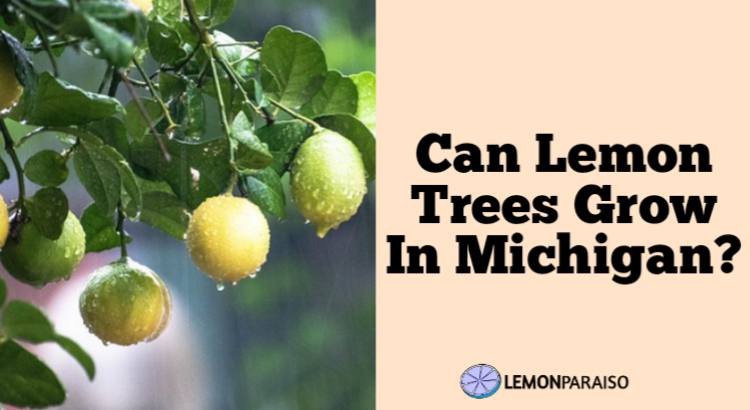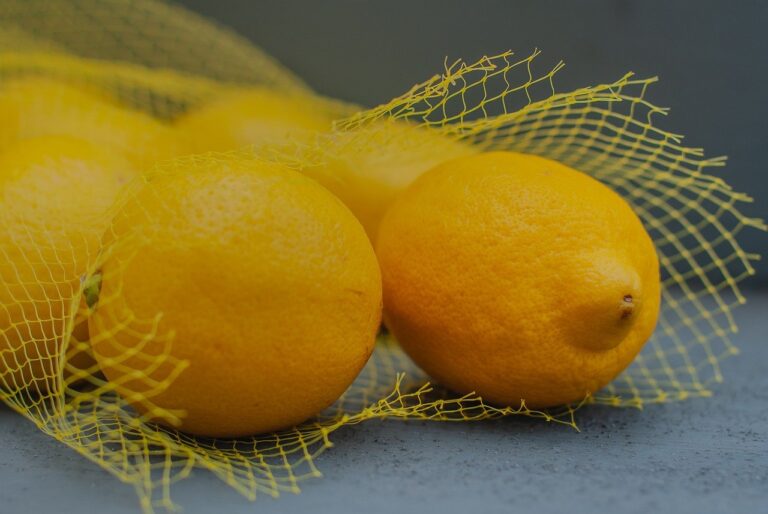Can Lemon Trees Grow In Michigan?

Lemon trees are a popular choice for home gardeners who wish to enjoy the delightful sight of a citrus tree and the fresh, tangy taste of homegrown lemons. However, cultivating lemon trees in Michigan presents unique challenges due to the state’s cold winters and temperate climate.
Can Lemon Trees Grow In Michigan?
Lemon trees can grow in Michigan, but due to the state’s cold winters and temperate climate, they require special care and attention. Most lemon tree varieties are not cold-hardy and will struggle to survive outdoors year-round in Michigan.
However, with proper protection, such as planting in a sheltered location or using cold frames, it is possible to grow lemon trees outdoors during the warmer months. For more reliable success, consider growing lemon trees in containers that can be moved indoors during the colder months.
A suitable indoor environment with ample sunlight and temperature control can ensure the tree’s health and productivity. Additionally, selecting a cold-hardy variety may increase the chances of successful lemon tree cultivation in Michigan.
What Is The Best Lemon Tree Variety For Michigan?
The best lemon tree variety for Michigan is one that is cold-hardy and can tolerate lower temperatures than most lemon trees. The Improved Meyer Lemon (Citrus x meyeri) is an excellent choice for this purpose, as it is more cold-tolerant than other lemon varieties and can withstand temperatures as low as 20°F.
The Ponderosa Lemon (Citrus x limon ‘Ponderosa’) is another option, known for its large fruit and adaptability to a range of growing conditions. Both of these varieties are well-suited for container growing, making it easier to bring them indoors during the colder months.
Whichever variety you choose, providing proper care and protection from extreme temperatures is crucial for successful growth in Michigan.
What Is The Minimum Temperature For Lemon Trees In Michigan?
The minimum temperature for lemon trees in Michigan largely depends on the specific variety being grown. Most lemon trees prefer a temperature range between 50°F and 80°F, with some cold-hardy varieties like the Improved Meyer Lemon able to tolerate temperatures down to 20°F.
It is important to note that extended exposure to freezing temperatures will damage or kill most lemon trees, regardless of the variety. In Michigan, it is essential to provide adequate protection from the cold, either by growing lemon trees in containers that can be brought indoors during winter or by implementing protective measures like frost blankets for outdoor trees.
What Is The Ideal Soil Ph For Lemon Trees In Michigan?
The ideal soil pH for lemon trees in Michigan is between 6.0 and 7.0, with a slightly acidic to neutral range being optimal. Lemon trees thrive in well-draining, fertile soil that retains enough moisture to support growth without becoming waterlogged.
If your soil has a pH outside of the ideal range, you can amend it using lime to raise the pH or sulfur to lower it. Regular soil testing can help you monitor the pH and make necessary adjustments to ensure optimal growing conditions for your lemon tree.
In addition to maintaining proper soil pH, it is important to provide adequate nutrients through regular fertilization.
How Much Sunlight Do Lemon Trees Need In Michigan?
Lemon trees need a minimum of six to eight hours of direct sunlight per day in Michigan. As the state experiences a temperate climate and shorter days during winter, providing enough sunlight for outdoor lemon trees can be challenging.
It is essential to choose a planting site with full sun exposure, preferably in a south-facing location to maximize sunlight during the growing season.
For container-grown lemon trees that are moved indoors during winter, placing them near a large, south-facing window or providing supplemental light with a grow light can help ensure they receive the necessary sunlight for proper growth and fruit production.
Can You Grow Lemon Trees Indoors In Michigan?
Yes, you can grow lemon trees indoors in Michigan, particularly if you choose a suitable variety and provide the necessary care. Dwarf lemon tree varieties, like the Improved Meyer Lemon or Dwarf Ponderosa Lemon, are excellent choices for indoor cultivation due to their compact size and adaptability.
Ensure that your indoor lemon tree receives at least six to eight hours of direct sunlight per day, either by placing it near a large, south-facing window or by using a grow light to supplement natural light. Additionally, maintain consistent indoor temperatures between 50°F and 80°F, with adequate humidity levels to prevent the tree from drying out.
How Do You Care For A Lemon Tree In Michigan?
Caring for a lemon tree in Michigan requires diligence and attention to detail, given the state’s challenging climate for citrus cultivation. Choose a cold-hardy variety, like the Improved Meyer Lemon, and plant it in a location that receives at least six to eight hours of direct sunlight per day.
Ensure the soil is well-draining and has a pH between 6.0 and 7.0. Regularly water the tree, allowing the soil to dry slightly between waterings to prevent overwatering. Fertilize the tree with a balanced, slow-release citrus fertilizer according to the product’s instructions.
If growing outdoors, provide protection from freezing temperatures with frost blankets or by moving container-grown trees indoors during the winter months. Prune the tree as needed to maintain a healthy, manageable shape.
How Long Does It Take For A Lemon Tree To Bear Fruit In Michigan?
The time it takes for a lemon tree to bear fruit in Michigan depends on the variety and growing conditions, but generally, lemon trees will begin to produce fruit within three to five years.
Improved Meyer Lemon trees, for example, can produce fruit within two to three years of planting, while other varieties may take longer. Be patient, as it may take some time for your lemon tree to become established and start producing fruit in Michigan’s climate.
Can Lemon Trees Be Grown In Containers In Michigan?
Yes, lemon trees can be grown in containers in Michigan, and in fact, container growing is often the preferred method for cultivating lemon trees in this region. Growing lemon trees in containers allows for better control over growing conditions, such as soil type and pH, and makes it easier to move the trees indoors during the cold winter months.
Dwarf varieties like the Improved Meyer Lemon and Dwarf Ponderosa Lemon are well-suited for container growing due to their compact size. Choose a large, well-draining container and use a high-quality potting mix designed for citrus trees to ensure proper nutrient levels and drainage.
Can You Grow Lemon Trees From Seeds In Michigan?
It is possible to grow lemon trees from seeds in Michigan, but this method presents several challenges. Seed-grown lemon trees may not produce fruit for many years and often do not yield fruit identical in taste or appearance to the parent tree.
Additionally, lemon trees grown from seed may not possess the same cold-hardiness or disease resistance as grafted or cutting-grown trees.
For more reliable results and quicker fruit production, it is recommended to purchase a grafted or cutting-grown lemon tree from a reputable nursery. If you still wish to try growing a lemon tree from seed, provide the seedling with the necessary care and growing conditions to ensure its best chance of survival in Michigan’s climate.


